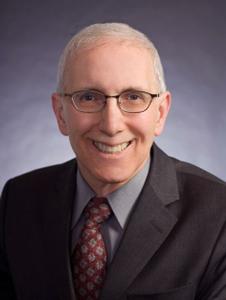After more than 17 years on the Seattle City Council, Nick Licata has decided to bid a reluctant, but affectionate farewell.
After much reflection, the unapologetic lefty has chosen not to seek another term. A champion of the city’s progressive politics, Licata, who has served under four mayors, was a powerful presence on the Council and will leave a gaping hole. A thoughtful and engaging leader, Licata once said, “You can’t be a leader from the caboose. To be a leader you gotta be in the engine, and sometimes it gets hot in the engine.”
“It was not a easy decision. I love this job,” Licata said at a gathering inside his office, attended by a few reporters and his longtime staff. Licata, 67, said he wanted to spend more time dealing with family matters (his stepson was disabled many years ago after being struck by a bus) and writing a book. “It will be out in January. I have two titles I’m working with — ‘How to Change the World,” or ‘A Handbook for Activists.'”
Licata also said he plans ti work with other cities throughout the country on such issues as increasing its minimum wage and paid sick leave, both of which Seattle has embraced and which the veteran councilmember called his proudest achievements.
As we noted when we named his Best Politician in our 2014 Best of Seattle issue, “He’s not a screamer or a grandstander. He listens before he acts. There’s a reason why he wins re-election by landslide margins.”
If he had opted to run again, Licata would havehad to run in one of the two newly established at-large seats, the results of the new district election system for the Council, which Licata vigorously opposed. Councilmember Sally Clark has already announced her intentions to run in District 9, where Licata was likely to land if he had run. Councilmember Tim Burgess is running at large in District 8.
Licata conceded it would have been “awkward” to have to run against a fellow council colleague, but added, “I’m a competitive guy,” and expressed confidence he would have emerged victorious. “It wasn’t a matter of whether I’d win, but I just want to be able to do more.”
A liberal to his core, Licata, as a younger man, lived in a Capitol Hill commune and published the alt-weekly Seattle Sun in the 1970s. Upon his first election to the Council, he instituted poetry readings in his committee meetings. He was well known earlier in his political career for fighting new sports stadiums. More recently, he was the sponsor of the city’s paid sick-leave law.
Licata said affordable housing will likely be one Seattle’s greatest challenges in the years ahead. “The marketplace won’t solve the problem of affordable housing,” he said. “Linkage fees and inclusive zoing will help some, but we are going to need to talk about rent control, or some form of it. That is going to need tobe in the conversation.”




